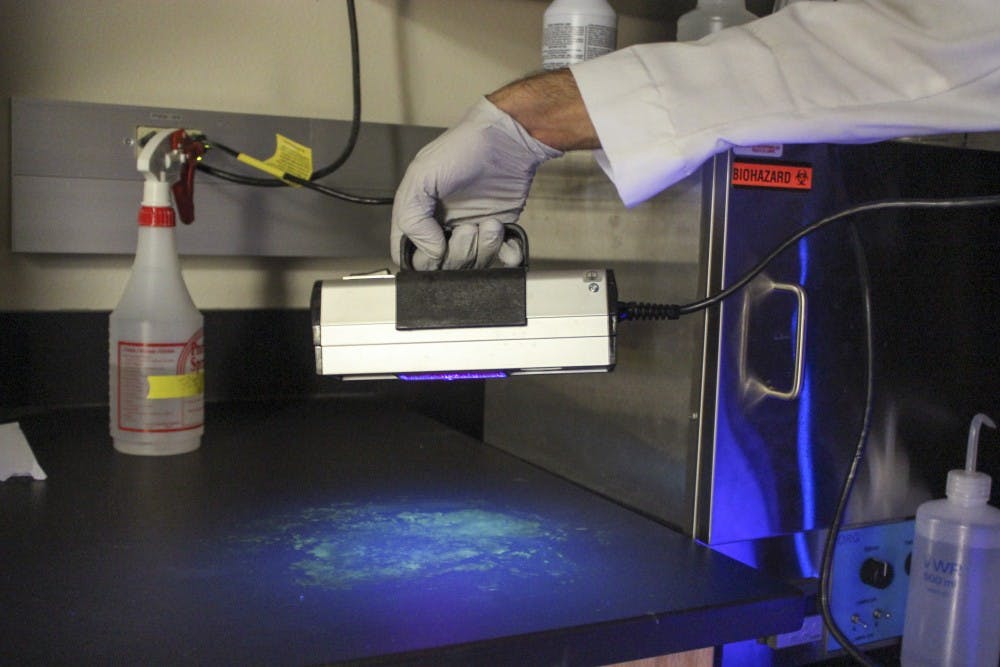The wipes aim to keep different surfaces cleaner for longer than usual with the help of compounds developed by the researchers, said David Whitten, associate director at the Center for Biomedical Engineering.
“We have developed a library of unique compounds that are really effective at killing nasty pathogenic bacteria,” he said. “We are at a point in our research where we think it is the time to develop some applications and we have tried to incorporate our compounds into wipes that people use.”
Whitten and his students think their compounds can be useful in cleaning medical tools in the hospitals, he said.
“You read all the time about antibiotic resistance strains in hospitals, we think that our compounds can kind of circumvent that problem and kill bacteria on variety of surfaces. It is something we are doing right now; we are trying to kill bacteria on counter-tops, fabrics or plastics,” said Harry Pappas, a research assistant at the Center for Biomedical Engineering.
Whitten and his students claim they can kill 999 out of 1,000 bacteria with the help of their compounds in about half-an-hour, he said. The wipes developed by Pappas and his colleagues have few advantages of doing things that the products in the stores cannot do, he said.
“Those wipes available at the stores are really effective at killing any bacteria on different surfaces but the surfaces cleaned with those wipes can become contaminated again and you will have to use another one,” he said.
This is especially a big issue in the hospitals where doctors have to clean their equipment every time they see a patient, he said.
The wipes developed by Pappas and his colleagues also leave a thin residue behind that helps the cleaners keep track of areas they forgot to clean, he said.
“The thin residue that the wipe leaves behind protects the surface from bacterial attacks. The residue left behind by the compounds also glows in the dark when light falls on them,” he said. “... If you are a nurse and you want to clean a room you can know where you cleaned and where you forgot to clean.”
Whitten said he is talking to companies about their potential interest in the new wipes.
Sayyed Shah is the assistant news editor at the Daily Lobo. He can be contacted at
Get content from The Daily Lobo delivered to your inbox
assistant-news@dailylobo.com or on Twitter @mianfawadshah






